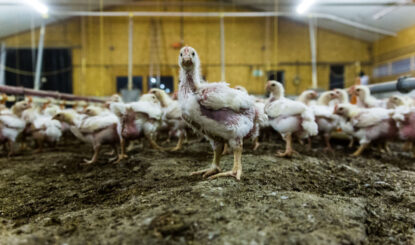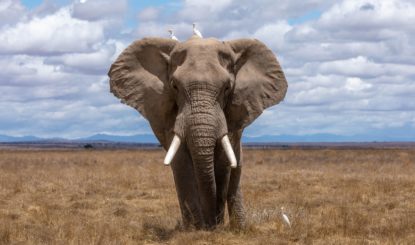Media Release: #BecauseWeEatAnimals – COVID-19 is the result of our consumption of animals
COVID-19, like all major pandemics and epidemics in recent years, is the result of our excessive consumption of animals. Fondation Franz Weber (FFW), together with experts in the fields of politics, nutrition, public health and ecology, have launched a global information campaign highlighting the link between our current consumption of animals and the epidemics that threaten our health. For Swiss NGO FFW, it is high time to re-evaluate the way we eat.
At the beginning of April, Fondation Franz Weber launched a worldwide information and awareness campaign on the impact of our current consumption of animals on our health and the environment. As of 3 April and in collaboration with experts from all fields, various articles, interviews and studies have been published under the title #BecauseWeEatAnimals (#PorComerAnimals #WeilWirTiereEssen #ParceQueNousMangeonsdesAnimaux). The FFW survey examines, one by one, the worst pandemics and epidemics in our recent history, their origins, political and social impacts and mortality rates.
The result of these analyses is indisputable. All these epidemics have the same common denominator: the excessive consumption of wild animals or use of animals in intensive livestock farming. Consequently, there is an urgent need to start a process of re-evaluating the way we eat, particularly with regard to our intake of protein.
Wild animals are vectors for viruses that are as yet unknown and to which humankind has no natural defence. Close contact with humans, especially in markets where animals are traded, is ideal for the spread of deadly epidemics. For this reason, FFW has sent an open letter to the Secretary-General of CITES, the Convention on International Trade in Endangered Species of Wild Fauna and Flora, on 1 April, urging the secretariat to take responsibility and implement effective measures against the trade in endangered wild animals (see open letter of April 1, 2020, attached to this media release).
At the same time, intensive livestock farming destroys biodiversity, takes up land, wastes and pollutes water, causes greenhouse gases, and involves the massive use of antibiotics, to which bacteria end up resisting. Our health is directly put at risk due to the consumption of animals.
In Switzerland, a federal initiative is calling for an outright ban of intensive animal farming: an initiative that is indispensable if crises similar to the current situation are not to be repeated. According to Vera Weber, President of FFW, “if we have to learn one thing from this crisis, it is that we must change our current food model toward more healthy, local food, favouring quality products that guarantee our wellbeing and safety. We cannot continue to destroy the planet, mistreat animals and get sick as a result”.
More information:
- Open letter to the CITES Secretariat (media release 1 April 2020)
- Online campaign #BecauseWeEatAnimals – Corona and other pandemics


